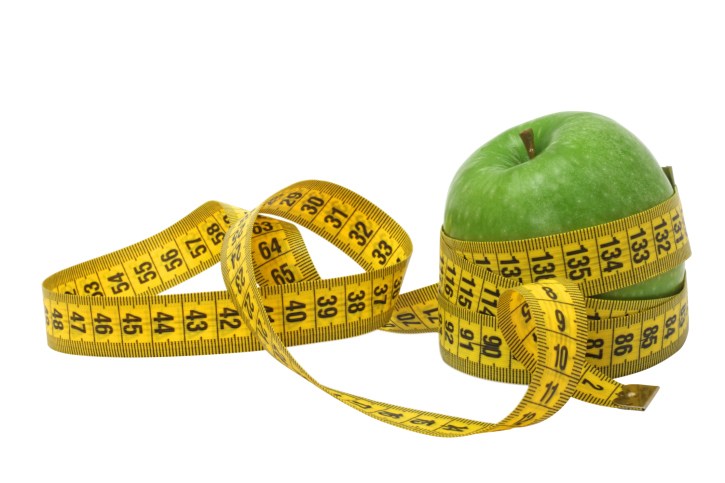Top Weight-Loss Secrets: How Women in the Army Lose Baby Fat
View as one page
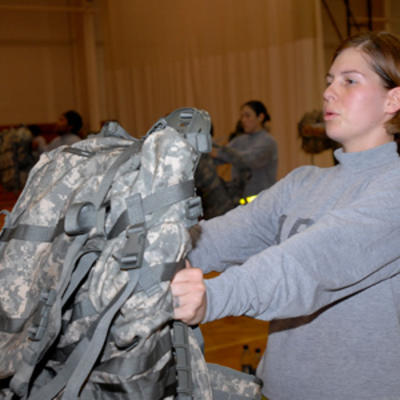
Tough times
Murray's case isn't that unusual: Enlisted soldiers have six months after giving birth to meet Army weight standards and pass the Army Physical Fitness Test (APFT). If they don't, they could be flagged and ultimately lose their jobs. Until recently, women started physical training with their regular units six weeks after delivery, outnumbered by fit and unsympathetic men and commanders with no experience in training soldiers recovering from childbirth. "They look down on you, no matter how good a soldier you were before," said Warrant Officer Jacey Martin, a new mother and soldier at Fort Bragg.
Only half of soldiers who were new moms passed their training tests six months after childbirth, and a third didn't meet the Army's weight and body composition standards, according to Department of Defense statistics published by The Army Times in 2006. Many ended up leaving the service.
View as one page
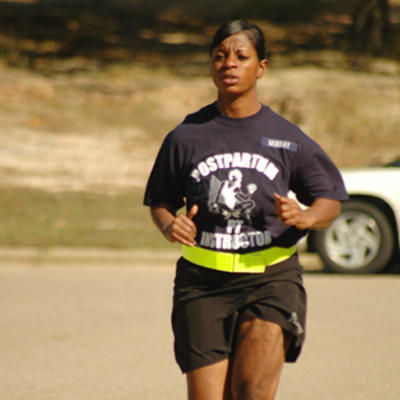
Murray on a mission
In Murray's case, she asked for—and was given—one more chance. She started working out at a women's-only gym outside of Fort Bragg and hired a personal trainer. Within two months, she began to get her body back. Murray found what she calls "her happy place"—the point where she could mentally shut out negative feelings and draw on her "intestinal fortitude." Within six months, Murray had lost her baby weight and passed her physical training test. But more than that, Murray had resolved to help other soldiers who are also new moms.
View as one page
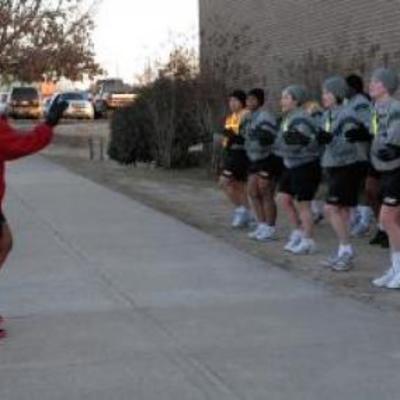
Fitness for new moms gets a makeover
There was a postpartum physical training program at Fort Bragg at the time, but it was still in its early stages, optional, and run by a man. Murray, pumped from her own success, volunteered to take over the class. "I wanted people to understand that if they can find their happy place and their own intestinal fortitude, their bodies can do more than they expect," she said. She's led the program at Fort Bragg ever since, with the exception of several deployments (including a year in Korea, where she started a similar program).
View as one page

Hard-earned success
Now many women leave the postpartum fitness program in the best shape of their lives. In the first quarter of 2009, 89% of women in the Fort Bragg program passed their fitness tests within six months after delivery, with 44% beating their own pre-pregnancy scores, according to the U.S. Army Center for Health Promotion and Preventive Medicine. "My Army Physical Fitness Training test (APFT) score two weeks ago is better than it was in 1999, 10 years ago," said 31-year-old Warrant Officer Jacey Martin.
And more women stay in the Army after completing the course, as well. Specialist Kimberly Newell reenlisted for six years after she passed her APFT. “Being able to pass the Army fitness test and meet the weight standard helped me make my final decision,” Newell said. “I think without Master Sgt. Murray, I would have left the military.”
View as one page
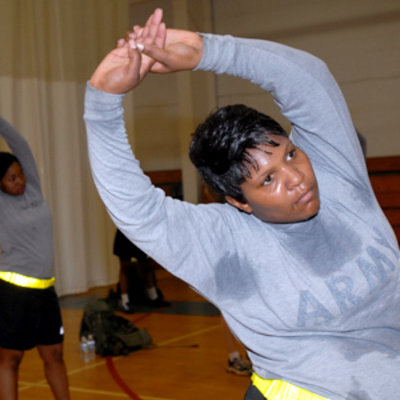
The Army takes notice
In December 2007, the Army decided to duplicate the success of the Fort Bragg program and others like it with a standarized version that's going Army-wide, called Pregnancy/Postpartum Physical Training (PPPT). Enlisted soldiers who normally do physical training with their units are required to enroll in thes programs shortly after learning that they’re pregnant.
The program follows guidelines from the American College of Obstetricians and Gynecologists, which encourages exercise throughout pregnancy, and hosts hour-long workouts at least three days a week. It also includes parenting classes. It's been so successful that some Marine and Air Force personnel sit in on Army PPPT Leader Training courses, planning to implement similar programs. And it's not just for the ladies: Men who attend these classes as guests leave sweaty and out of breath, as well. They take away new experiences to replace stereotypes about what pregnant and postpartum soldiers can do.
View as one page
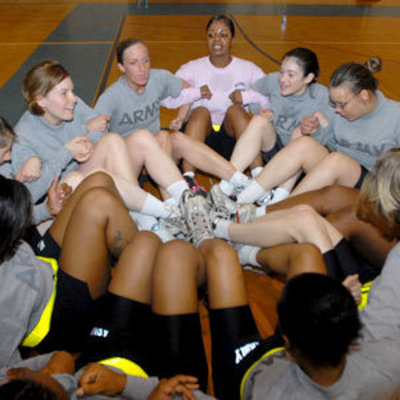
It's not just the push-ups and sit-ups
The camaraderie of being with other new and expectant moms builds on Murray's own brand of motivation and passion. "I'm very careful about what I say. I push them, but I never say anything negative. They have all these other negative voices pulling at them, and I teach them how to shut that out and build themselves and their self-esteem back up," says Murray.
The women who've worked with Murray say the success doesn't just come from the exercise: “It’s not the push-ups and sit-ups,” Martin said. "Part of the reason I was able to keep going was because of the pep talks Master Sgt. Murray gives. For me, that was my coffee. I call it ‘Murray juice.’"
-
Low Carb Meals - 3 Benefits Of Getting Low Carb Meals Delivered To Your Home
Eating low carb meals can help you lose weight and feel healthier over
-
6 Things You Must Become Good at if You Want Six Pack Abs
Fail to plan and plan to fail. You cant get truer words when it co
-
The Best Free Weight Loss Program For Natural Weight Loss
The best things in life are free and that is truly the case when it co
-
Tips To Battle Food Cravings
Have you ever noticed that when you are exhausted or down, you have
-
5 Weight Loss tips When Moving to Australia to Work
Australia is one of the most popular destinations in the world for ind
-
9 Happy Weight Loss Tips from the Patron Saint of Permanent Fat Removal
Our Lady of Weight Loss, the patron saint of permanent fat removal
- DON'T MISS
- Things to Keep In Mind and Foods to Eat In Order to Lose Weight
- How To Go About Shedding Weight.
- 10 (Very) Common Reasons Why You Are Not Losing Weight
- The Low Down On Low Glycemic Foods And How It Can Help Curb Hunger And Lose Weight
- What To Do If Diets Dont Work
- How to Choose Best Weight Loss Product
- Exercise Intensity Vs Duration
- Fatloss4idiots - How To Lose Weight Effectively
- Diabetes drug can now treat obesity, experts
- Counting Calories And Still Not Losing Weight? Here’s Why

